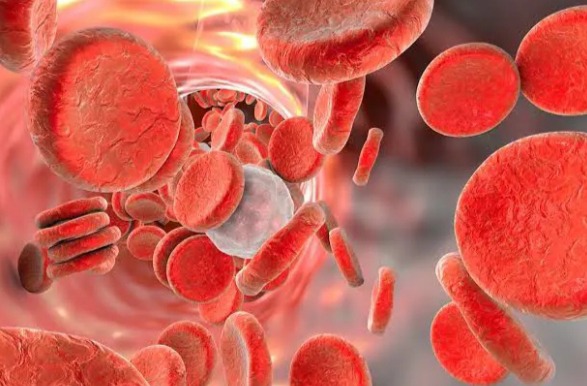Blood is a constantly circulating fluid that gives the body nutrients, oxygen and helps pass out waste products. Blood is normally liquid, with multitudinous cells and proteins suspended in it, producing blood. The average person has about 5 liters (more than a gallon) of blood.
Blood helps in transporting carbon dioxide and other waste products to the lungs, kidneys, and digestive system to be removed from the body. Blood also wards off infections and carries hormones around your body.
Three major types of blood cells include.
• Platelets-They help the blood to clot. Clotting stops the blood from flowing out of the body when a vein or artery is broken.
• Red blood cells-They help transport oxygen throughout the body. The body produces these cells at a rate of about 2.4 million per second. Red blood cells are also called erythrocytes.
• White blood cells-They help preclude infection. These cells are important in boosting your body’s immunity. When the body is preventing infection, it makes them in increases. White blood cells are also called leukocytes.
 Some of the signs of insufficient blood in the body include.
Some of the signs of insufficient blood in the body include.
1. Pale skin
 Pale skin is an anemic condition triggered by insufficient hemoglobin in red blood cells and a lack of red blood cells in general.
Pale skin is an anemic condition triggered by insufficient hemoglobin in red blood cells and a lack of red blood cells in general.
2. Having cold hands and feet
 Cold hands and feet can be caused by a lack of sufficient blood. People with low red blood cells have poor blood circulation throughout their bodies because they do not have enough red blood cells to supply oxygen to their tissue.
Cold hands and feet can be caused by a lack of sufficient blood. People with low red blood cells have poor blood circulation throughout their bodies because they do not have enough red blood cells to supply oxygen to their tissue.
3. Brevity of breath
 Low blood pressure can affect other organs leading to shortness of breath, fainting, blacking out, pain in the chest, and cool, clammy skin.
Low blood pressure can affect other organs leading to shortness of breath, fainting, blacking out, pain in the chest, and cool, clammy skin.
4. Dizziness
 Dizziness, lightheadedness, and the feeling to urinate regularly are common issues faced by people who have low blood pressure. When the blood pressure is too low, insufficient oxygen-rich blood is passed to the brain, and its function can be impeded.
Dizziness, lightheadedness, and the feeling to urinate regularly are common issues faced by people who have low blood pressure. When the blood pressure is too low, insufficient oxygen-rich blood is passed to the brain, and its function can be impeded.
5. Fatigue
 Fatigue is the most common symptom of low red blood cell count.
Fatigue is the most common symptom of low red blood cell count.
Once you notice these symptoms in your body, ensure you visit the hospital for prompt treatment.

 Health & Fitness1 week ago
Health & Fitness1 week ago
 Aviation1 week ago
Aviation1 week ago
 Inspirational6 days ago
Inspirational6 days ago
 Featured5 days ago
Featured5 days ago
 Crime5 days ago
Crime5 days ago
 Featured5 days ago
Featured5 days ago
 Business4 days ago
Business4 days ago
 Editorial2 days ago
Editorial2 days ago

